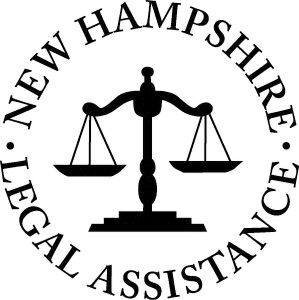Homelessness in NH and the Connections to Fair Housing
Across the country and here in New Hampshire, homelessness is on the rise. The increased cost in housing, a lack of available rental units, and stresses from the COVID-19 pandemic are major contributing factors.
Homelessness also disproportionately affects people of color and people with disabilities, which are protected classes under the Fair Housing Act. Housing discrimination based on disability is the most common form of housing discrimination in New Hampshire, creating an added barrier to housing. In this post, we’ll look at the connection between housing discrimination and homelessness and how addressing both issues can help improve the quality of life of those affected.
Homelessness in New Hampshire Today
We can see that race and having a disability are connected to greater risk for homelessness here in New Hampshire.
In its 2020 “State of Homelessness in New Hampshire” report, the New Hampshire Coalition to End Homelessness (NHCEH) found a 21% increase over the previous year in the homeless population–or about 4,451 individuals experiencing homelessness in 2020. Of these individuals, about 1,577 were family members, as opposed to a single person being homeless on his or her own. This report did not count people who are staying with relatives and friends while searching for permanent housing–known as housing insecure.
According to the Center on Budget and Policy Priorities, about half of adults and two-thirds of veterans living in homeless shelters across the country in 2018 reported having a disability. Here in New Hampshire, a survey of people with intellectual or developmental disabilities and their caretakers, conducted by the Concord-based ABLE NH (Advocates Building Lasting Equality in New Hampshire), found that 68% of family caretakers said their loved one is currently at risk of homelessness.
The State of Homelessness in New Hampshire study also found that African Americans and multi-racial people make up 2.7% of New Hampshire’s population, but represent 10.2% of the homeless population. Similarly, Hispanic people make up 2.8% of the population, but 10.6% of the homeless population.
Addressing the Disparities
If we know of these disproportionate effects, how can policy makers address them? NHCEH report notes that more effort needs to be made to tackle racial equity in New Hampshire.
“The pandemic has increased our awareness and recognition of how people of color continue to suffer from our long history of housing discrimination, and from the racism that remains embedded in so many of our current policies and practices,” the report said. “In order to prevent and end homelessness in New Hampshire, service providers, policy makers, and local, state and national officials will need to assess these policies and practices through a racial equity lens.”
By tackling racial equity issues the state has an opportunity to address not only address housing discrimination, but homelessness as well.
Housing Affordability at the Core of the Problem
Housing availability and affordability is at crisis levels here in New Hampshire, and Governor Sununu recently proposed an initiative to encourage the construction of more affordable housing in the state.
Lack of access to housing for protected class members remains a critical challenge. Poverty is one factor. New Hampshire is the only state in New England that does not have a minimum wage higher than the federal minimum wage of $7.25 per hour. An individual making minimum wage would have to work 129 hours per week to afford a 2-bedroom apartment at the fair market rent in New Hampshire, or would have to earn $23.43 per hour to afford a 2-bedroom unit in the state.
Affordability is another factor. Even for people who are not considered low-income, rents can be unsustainable. The median rent for a two-bedroom unit in New Hampshire is $1,498. In addition, availability is making finding a rental difficult. As of February 2022, the vacancy rate for rental properties is at 0.6% statewide.
NHLA’s Fair Housing Project works to ensure fair access to housing, but it is also invested in promoting policies that will help make housing more affordable and easier to obtain for all people. Addressing affordability as well as discriminatory practices will help get us closer to our goal.
If you have questions about housing discrimination, contact the NHLA Fair Housing Project at 1-800-921-1115.

